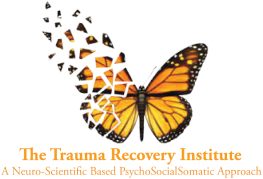16 Mar Life Mastery Program – Getting Beyond Trauma Symptoms
Becoming Whole – Life after Complex PTSD
The core dilemma of complex trauma is that your longing for connection conflicts with memories that tell you relationships are not safe. Initially, you may re-create relationships that match what you already know. perhaps you unintentionally push people awayand then feel angry that nobody ever calls/supports you. Maybe you tend to choose partners who treat you poorly because deep inside this feels familiar. In contrast, a healing relationship such as the psychotherapeutic relationship will allow you to gently recognise and take responsibility for any part you may play in perpetuating unhealthy dynamics. In a trusting Relationship , you can expose your fears and learn that you will not be rejected or harmed. Slowly, you’ll learn to allow another person to witness your confusion, discomfort, anger, grief, or shame.
Whether you are feeling anxiety depression you can use tools to engage your social nervous system to re-establish higher order nervous system functions. For example, if you are experiencing anxiety you are likely in fight or flight, a key defense reaction of sympathetic nervous system. Sympathetic actions involve mobilization; the need to move your body to release the build of stress cortisols. You can engage your social nervous by rubbing your hands together vigorously and making physical contact to your own face, neck, upper chest, arms, and legs. You can also explore physical movements that feel safe and grounding such as going for a walk or shaking your arms and legs to release stress. When we feel safe we can engage our social nervous system to use the energy of the sympathetic nervous system to dance, play, and laugh.
Feeling shut down, collapsed, depressed, or numb is an indication that you are in the defensive reactions of your parasympathetic nervous system which is characterized by immobilization. If you have a history of trauma it is possible that you are perceiving threats in your environment that are not actually occurring in the here and now. This is because a common symptom of PTSD is confusion between the past and the present. In this case, your social nervous system can help you find clues that help you recognize that you are not in imminent danger now which helps you access the positive, relaxing elements of your parasympathetic nervous system of “rest and digest.” When possible, turn towards a loving connection with a friend, caring partner, or a pet. If you are able, make eye contact or call someone you trust and listen to the sound of their voice. You can also visualize a loving animal, friend, or protective ally to restore a felt sense of connection. When we can embrace immobilization with safety we can access the nourishment of the relaxation response.

Treating Trauma & Maladaptive Trauma Based Presentations at Trauma Recovery Institute. We offer clients an unique opportunity to work with trauma professionals specialising in recovery from complex trauma using an unique blend of somatic and psychodynamic psychotherapy which a an approach called Dynamic Psychosocialsomatic Psychotherapy which is based on the latest and most current trauma research and scientific findings from neuroscience, interpersonal neurobiolgy and attachment theory.




Working with Trauma at Trauma Recovery Institute
Trauma Recovery Institute offers unparalleled services and treatment approach through unique individual and group psychotherapy. We specialise in long-term relational trauma recovery, sexual trauma recovery and early childhood trauma recovery. We also offer specialized group psychotherapy for psychotherapists and psychotherapy students, People struggling with addictions and substance abuse, sexual abuse survivors and people looking to function in life at a higher level. Trauma recovery Institute offers a very safe supportive space for deep relational work with highly skilled and experienced psychotherapists accredited with Irish Group Psychotherapy Society (IGPS), which holds the highest accreditation standard in Europe. Trauma Recovery Institute uses a highly structured psychotherapeutic approach called Dynamic Psychosocialsomatic Psychotherapy (DPP).
At Trauma Recovery Institute we address three of the core Attachment Styles, their origin’s the way they reveal themselves in relationships, and methods for transforming attachment hurt into healing. We use the latest discoveries in Neuroscience which enhances our capacity for deepening intimacy. The foundation for establishing healthy relationships relies on developing secure attachment skills, thus increasing your sensitivity for contingency and relational attunement. According to Allan Schore, the regulatory function of the brain is experience-dependent and he says that, as an infant, our Mother is our whole environment. In our relational trauma recovery approach you will learn to understand how the early patterns of implicit memory – which is pre-verbal, sub-psychological, and non-conceptual – build pathways in our brain that affect our attachment styles. Clinically, we can shift such ingrained associative patterns in our established neural network by bringing in new and different “lived” experiences in the Here and Now, thus developing a learnt secure attachment.

Dynamic Psychosocialsomatic Psychotherapy (DPP) at Trauma Recovery Institute Dublin
Dynamic Psychosocialsomatic Psychotherapy (DPP) is a highly structured, once to twice weekly-modified psychodynamic treatment based on the psychoanalytic model of object relations. This approach is also informed by the latest in neuroscience, interpersonal neurobiology and attachment theory. As with traditional psychodynamic psychotherapy relationship takes a central role within the treatment and the exploration of internal relational dyads. Our approach differs in that also central to the treatment is the focus on the transference and countertransference, an awareness of shifting bodily states in the present moment and a focus on the client’s external relationships, emotional life and lifestyle.
Dynamic Psychosocialsomatic Psychotherapy (DPP) is an integrative treatment approach for working with complex trauma, borderline personality organization and dissociation. This treatment approach attempts to address the root causes of trauma-based presentations and fragmentation, seeking to help the client heal early experiences of abandonment, neglect, trauma, and attachment loss, that otherwise tend to play out repetitively and cyclically throughout the lifespan in relationship struggles, illness and addictions. Clients enter a highly structured treatment plan, which is created by client and therapist in the contract setting stage. The Treatment plan is contracted for a fixed period of time and at least one individual or group session weekly.
“Talk therapy alone is not enough to address deep rooted trauma that may be stuck in the body, we need also to engage the body in the therapeutic process and engage ourselves as clients and therapists to a complex interrelational therapeutic dyad, right brain to right brain, limbic system to limbic system in order to address and explore trauma that persists in our bodies as adults and influences our adult relationships, thinking and behaviour.”


Sorry, the comment form is closed at this time.